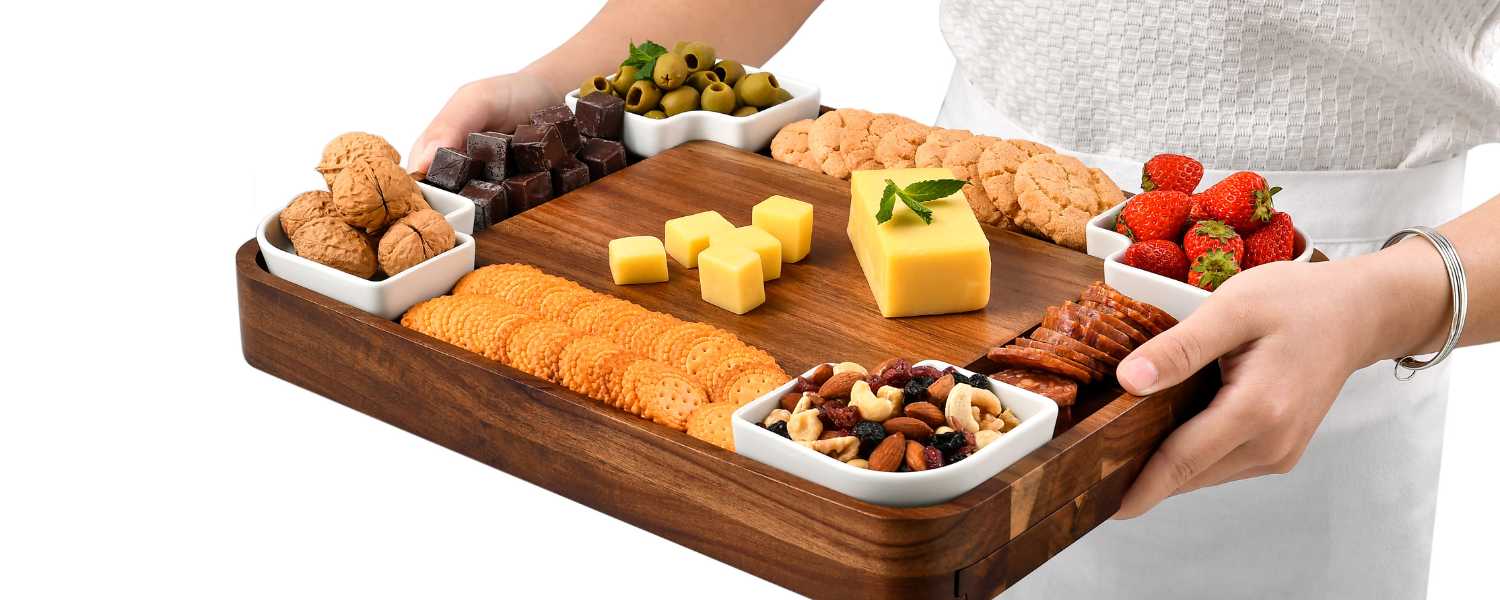Brie cheese is a delicious and creamy cheese that many people enjoy, but how long does it actually last?
Understanding the longevity of Brie cheese and the best storage practices is important to ensure its quality and safety for consumption. In this guide, we'll decode the mysteries surrounding Brie cheese longevity in simple terms.
We'll explore factors that affect its shelf life, such as storage conditions and packaging, and provide practical tips on how to extend its freshness.
Whether you're a cheese enthusiast or just curious about how to make your Brie cheese last longer, this guide will provide you with the knowledge you need in everyday language.
Brie cheese is a beloved delicacy known for its creamy texture and distinct flavor profile. Brie cheese, originating from the Île-de-France region of France, has become popular worldwide.
It is commonly enjoyed on cheese platters, in sandwiches, and as a versatile ingredient in various recipes. However, like all perishable foods, Brie cheese has a limited shelf life, and understanding the factors that influence its freshness is essential for maintaining its quality.
Factors Influencing Brie Cheese Shelf Life

Many things can affect how long Brie cheese stays good to eat:
1. Moisture Content
Brie cheese contains a lot of moisture, which makes it prone to spoilage if not stored correctly. Excess moisture leads to the growth of bacteria and mold, which can also spoil the cheese more quickly. It's important to store Brie cheese in a way that prevents excess moisture buildup to extend its shelf life.
2. Temperature
The temperature at which Brie cheese is stored significantly affects its shelf life. Keeping the cheese at a steady temperature between 36°F and 45°F (1.7°C to 7.2°C) helps to prevent bacteria from growing quickly and keeps the cheese fresh for longer. Temperature changes, like exposure to hot or cold conditions, can accelerate spoilage and decrease the cheese's quality over time.
3. Packaging
The type of packaging used for Brie cheese plays a crucial role in preserving its shelf life. Cheese wrapped in breathable materials like wax paper or cheese paper allows for proper air circulation, preventing moisture buildup and prolonging freshness. Proper packaging helps protect the cheese from external contaminants and maintains its quality during storage.
4. Handling
Proper handling practices are essential for preserving the quality of Brie cheese. Avoiding cross-contamination with other foods, making sure the cheese doesn't get too hot or sit in direct sunlight, and practicing good hygiene when handling the cheese can help extend its shelf life. By handling Brie cheese properly, you can minimize the risk of contamination and enjoy it at its best for extended periods.
How Long Does Brie Cheese Last?

Brie cheese lasts unopened and can stay good anywhere from a few weeks to a couple of months if stored properly in the refrigerator. However, once the cheese is opened, its shelf life is significantly shorter.
Brie cheese can last in the refrigerator for about 1-2 weeks after opening, but it is best consumed within a few days for optimal flavor and freshness.
However, it's essential to watch for any signs of spoilage before eating Brie cheese. If you see mold, smell something off, or feel a change in texture, such as excessive softness or graininess, it's best to discard the cheese.
To keep your Brie cheese fresh, wrap it tightly in wax paper or cheese paper and store it in the fridge at a steady temperature, which can help extend its shelf life.
To maintain the exquisite flavor and texture of Brie cheese, it's best to avoid freezing it, as this can significantly alter its taste and consistency. Instead, savoring your Brie cheese promptly and monitoring its quality will guarantee a delightful culinary journey, especially when serving it on a unique turntable cheese board.
Signs of Spoilage
It's crucial to inspect Brie cheese for signs of spoilage before consuming it. Some common indicators that Brie cheese has gone wrong include:
1. Mold Growth
Brie cheese naturally develops a white, bloomy rind as it ages, any signs of mold growth beyond this can indicate spoilage. Mold growth may appear as fuzzy patches or spots on the surface of the cheese.
If you see any mold that is not part of the regular rind, it's best to discard the cheese. Mold can create harmful toxins that might make you sick if you eat them, so it's smarter to play it safe and avoid moldy food.
2. Off Odors
Spoiled Brie cheese may emit unpleasant odors, such as a sour or ammonia-like smell. If the cheese smells rancid or pungent, it is best to discard it.
Trust your sense of smell—if the cheese smells off, it probably is. Eating spoiled cheese leads to food poisoning, so it's essential to err on the side of caution.
3. Texture Changes
Fresh Brie cheese should have a creamy texture throughout. It may have spoiled if the cheese feels excessively soft, slimy, or grainy. Changes in texture can indicate that the cheese has started to break down and is no longer safe to eat.
Proper Storage Techniques
Proper storage techniques are essential for maintaining the freshness and quality of Brie cheese. Here's a detailed explanation of each point:
1. Store in the Refrigerator
Brie cheese should always be stored in the refrigerator to keep it cool and prevent it from spoiling quickly. The best temperature to keep your Brie cheese fresh is between 35°F and 45°F (1.7°C and 7.2°C). Keeping the cheese in this temperature range slows down the growth of bacteria and mold, preserving the cheese's freshness and flavor.
2. Avoid Freezing
While freezing can extend the shelf life of some cheeses, it's not recommended for Brie cheese, especially if you plan to serve it on a rotating cheese board. Freezing alters the cheese's texture and flavor, making it less enjoyable to eat. Additionally, the moisture content in Brie cheese can cause it to become mushy or grainy when thawed from frozen, compromising its quality.
3. Serve at Room Temperature
Before serving Brie cheese, it's best to let it come to room temperature for optimal flavor and texture. Take the cheese out of the fridge about 30 minutes to an hour before you plan to serve it. This will give it time to soften and bring out all its delicious flavors. Serving Brie cheese at room temperature enhances its creamy texture and allows its subtle flavors to shine.
4. Use Clean Utensils
When handling Brie cheese, always use clean utensils to prevent cross-contamination with other foods and bacteria. To make sure your cheese stays safe to eat, avoid using utensils that have been in contact with raw meat or perishable foods. Using clean utensils helps preserve the freshness of Brie cheese and ensures that it remains safe to eat.
Conclusion
Brie cheese is a tasty and flexible cheese that can make many different dishes and recipes even better. Understanding the factors influencing its shelf life and knowing how to properly store and handle Brie cheese is essential for preserving its freshness and flavor.
By following proper storage techniques and being vigilant for signs of spoilage, you can enjoy Brie cheese at its best and avoid the disappointment of consuming cheese past its prime.
At Shanik Home, we provide valuable insights and tips on how to decode the longevity of Brie cheese through our comprehensive guide on best storage practices. Our platform offers expert advice on how to properly store Brie cheese to maximize its shelf life and preserve its flavor and texture.
By following our recommendations, users can ensure that their Brie cheese stays fresh for longer periods, avoiding spoilage and waste. With Shanik Home's guidance, cheese enthusiasts can enjoy their favorite Brie cheese with confidence, knowing that they are employing the best storage techniques to maintain its quality.

